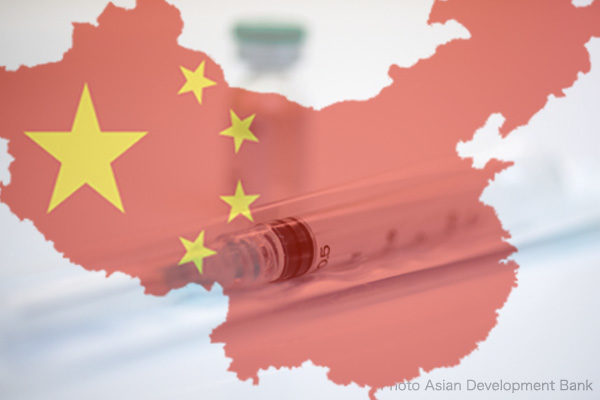China is aggressively promoting its vaccine diplomacy to provide developing countries with novel coronavirus vaccines that it has developed on its own. The approach has attracted countries failing to get Western vaccines, indicating that China’s global influence could dramatically expand if the coronavirus disaster successfully comes to an end.
As of February 8, China planned to grant its vaccine to 53 countries, according to its Foreign Ministry. They include Indonesia and most other members of the Association of Southeast Asian Nations, Pakistan known as the most friendly South Asian country for China, Egypt and Iran as major players in the Middle East and North Africa, Hungary that belongs to the European Union and the North Atlantic Treaty Organization while being under an authoritarian government, Turkey also as a NATO member having difficult relations with the West, Mexico neighboring the United States, and South American countries such as Peru, Brazil, and Chile. Cambodia, Serbia, and Zimbabwe are among those that have begun to take delivery of Chinese vaccines.
Artful Chinese diplomacy
The list of Chinese vaccine recipients indicates Beijing’s grand strategy to solidify relations with its traditionally friendly countries, reconstruct ties with countries participating in the Belt and Road Initiative that aims to expand its sphere of influence but is reportedly stagnating due to debt-trap scandals and the coronavirus pandemic, and reach out to the home territory or backyard of Western industrial democracies.
After covering up the novel coronavirus outbreak, allowing the virus to spread throughout the world, and putting the outbreak under control through coercive measures, China is acting as a good neighbor for developing countries that have failed to quickly receive coronavirus vaccine from Western countries. Those developing countries may be desperate to get vaccines, even though the effectiveness of Chinese vaccines is still doubted. Russia and India also have embarked on their respective vaccine diplomacy. Western industrial democracies have been left behind in such diplomacy.
At last, Western democracies have had a sense of crisis about Chinese and other diplomatic offensives. At their online summit on February 19, the Group of Seven industrial democracies, including Japan, agreed to increase contributions to an international framework to purchase vaccines to be granted to developing countries. However, they have no choice but to give top priority to their domestic vaccination rather than supporting developing countries.
Japan bound by allergy to military
Japan’s presence in vaccine diplomacy has been scarce. Japan does not have its own coronavirus vaccine that it can provide to developing countries in the first place. Behind Japan’s defeat in global competition for developing novel coronavirus vaccines is the fact that the government has failed to view infectious disease vaccines as a strategic good involving national security and failed to fully support vaccine research at drug companies and universities.
In the U.S., the military provides the private sector with funds for research related to national security. In Japan still bound by the postwar allergy to the military, such research is bound to be blocked. The postwar regime that has renounced war underlies such blockage. Unless the regime is revised, Japan cannot do anything against vaccine diplomacy. When will Japan become aware of this tragedy?
Yasushi Tomiyama is a senior research fellow and Planning Committee member at the Japan Institute for National Fundamentals and a former foreign news editor and bureau chief in Washington, D.C., London, and Bangkok for the Jiji Press.


